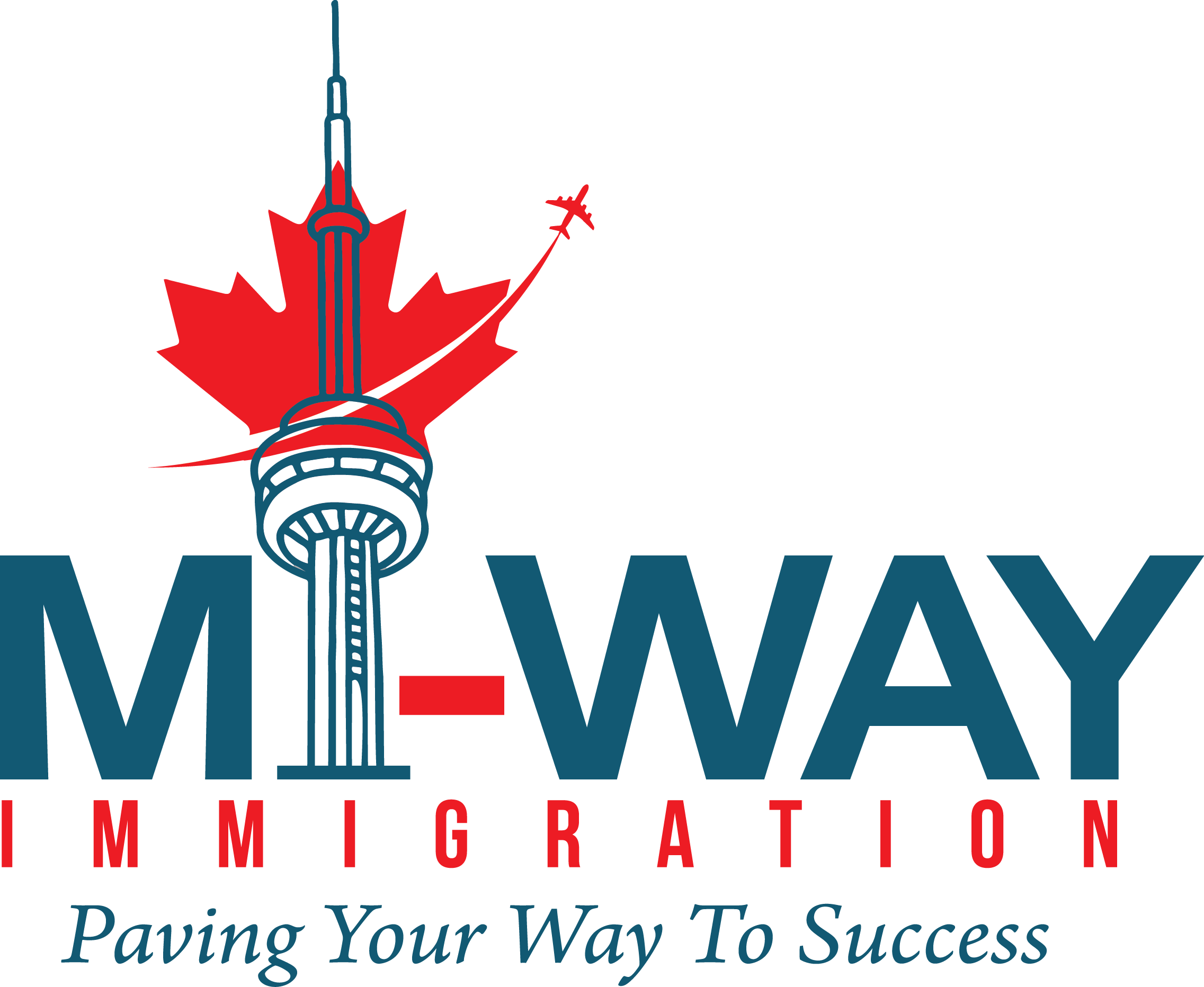Canada’s Tourism Sector Drives Economic Growth: What It Means for Skilled Immigrants
Published: October 8, 2025
Canada’s tourism industry demonstrated remarkable resilience in the second quarter of 2025, with domestic travel fueling a 1.3% GDP growth that outpaced the broader economy’s 0.2% contraction during the same period. According to Statistics Canada, the tourism sector now contributes 1.77% to national GDP, up from 1.75% in Q1—a trend creating substantial employment opportunities for skilled immigrants across hospitality, food services, and recreational sectors.
Domestic Tourism Surge Drives Economic Performance
The standout narrative of Q2 2025 centers on Canadians’ strong preference for domestic travel destinations, with spending in this category increasing by 2.9% compared to the previous quarter. This shift reflects changing consumer behavior influenced by currency exchange rates, travel convenience, and growing appreciation for Canada’s diverse regional attractions.
Consumer Spending Patterns
Recent surveys reveal significant shifts in Canadian travel preferences:
- 34.8% of Canadians planned to increase domestic vacation spending
- 55.1% reduced travel expenditures to the United States
- Strong preference for regional destinations including Atlantic Canada, Rocky Mountain regions, and northern territories
This domestic focus generated substantial gains across tourism-related sectors:
Accommodation Services: +6.5% growth reflecting increased hotel, resort, and vacation rental bookings
Food and Beverage Services: +3.9% expansion driven by restaurant dining, catering, and hospitality establishments
Transportation Services: Positive rebound in passenger transportation including airlines, railways, and vehicle rentals
These combined gains positioned tourism as one of the few economic sectors achieving growth during a quarter when overall GDP declined marginally.
International Tourism Trends
While domestic tourism flourished, international visitor spending presented a contrasting picture with a 5.3% decline in Q2 2025. The most significant decrease came from American travelers, whose spending dropped 10.2% compared to Q1.
Contributing Factors
Several elements influenced the international tourism decline:
- Currency exchange rates making Canadian travel less attractive for US visitors
- Economic uncertainty in major source markets affecting discretionary travel spending
- Competitive destinations offering alternative options for international travelers
- Seasonal adjustments following strong Q1 performance
Despite this international softness, the robust domestic market more than compensated, demonstrating the resilience of Canada’s tourism infrastructure and the sector’s ability to adapt to changing market conditions.
Employment Growth in Tourism-Related Sectors
The tourism sector’s economic strength translated directly into employment expansion, with 712,000 Canadians now working in tourism-related positions—a 0.6% increase from Q1 2025. This growth occurred across multiple subsectors:
Job Growth by Category
Food and Beverage Services: +0.8%
- Restaurant servers, chefs, and kitchen staff
- Catering coordinators and event specialists
- Bar and beverage service professionals
Recreation and Entertainment: +1.4%
- Tour guides and outdoor activity coordinators
- Event planners and hospitality managers
- Cultural attractions and museum staff
Non-Tourism Industries Supporting Travel: +0.7%
- Retail sales in tourist destinations
- Transportation services and logistics
- Maintenance and facility management
Tourism employment now represents 3.34% of Canada’s total workforce, highlighting the sector’s significant contribution to national employment and its role as an accessible entry point for newcomers seeking Canadian work experience.
Immigration’s Critical Role in Tourism Growth
The tourism sector’s expansion creates immediate opportunities for skilled immigrants, particularly as Canada faces broader labour shortages across multiple industries. The hospitality and tourism workforce requires diverse skill sets, from customer service and food preparation to management and specialized technical capabilities.
In-Demand Positions for Skilled Immigrants
Front-Line Service Roles
- Hotel receptionists and guest services coordinators
- Restaurant servers and hospitality attendants
- Retail sales associates in tourist areas
Culinary Professionals
- Chefs specializing in diverse cuisines
- Bakers and pastry specialists
- Kitchen managers and food safety coordinators
Management and Specialized Positions
- Hotel and resort managers
- Event planning and coordination specialists
- Tourism marketing and business development professionals
Transportation and Logistics
- Tour bus drivers and transportation coordinators
- Travel agency consultants and booking specialists
- Logistics coordinators for hospitality operations
Why Tourism Offers Strong Immigration Pathways
The tourism sector provides several advantages for newcomers building Canadian careers:
Accessible Entry: Many positions require moderate language proficiency and offer on-the-job training, making them accessible for recent arrivals
Geographic Distribution: Tourism jobs exist across Canada, including smaller communities and regions outside major urban centers
Career Progression: Entry-level positions often lead to supervisory roles and management opportunities with experience
Transferable Skills: Customer service, communication, and operational skills developed in tourism transfer to other sectors
Permanent Residence Pathways: Tourism experience counts toward Canadian work experience requirements for Express Entry and Provincial Nominee Programs
Economic Context for Prospective Immigrants
The tourism sector’s Q2 performance illustrates broader trends relevant to immigration planning:
Economic Resilience
Despite overall GDP contraction, tourism demonstrated growth—indicating sector-specific strength that creates employment stability even during economic adjustments.
Regional Opportunities
Domestic tourism growth benefits communities across Canada, from coastal British Columbia to the Atlantic provinces, creating opportunities beyond traditional immigration hubs like Toronto, Vancouver, and Montreal.
Workforce Sustainability
With Canada’s aging population and declining birth rates, sustained immigration remains essential for maintaining workforce levels across all sectors, particularly service industries like tourism and hospitality.
Provincial Nominee Programs and Tourism Sectors
Several provinces specifically prioritize tourism and hospitality workers through targeted Provincial Nominee Program streams:
British Columbia: Tourism and hospitality streams supporting West Coast tourism infrastructure
Alberta: Hospitality workers supporting mountain resort communities and Calgary/Edmonton tourism sectors
Atlantic Provinces: Tourism workers helping regional tourism development in Nova Scotia, New Brunswick, Prince Edward Island, and Newfoundland
Saskatchewan and Manitoba: Regional hospitality workers supporting tourism development outside major urban centers
These programs often provide faster processing and lower eligibility thresholds for qualified tourism professionals, making them attractive options for skilled immigrants with relevant experience.
Strategic Considerations for Skilled Workers
For international professionals considering Canadian immigration with tourism sector experience:
Assess Credential Recognition
Ensure foreign credentials in hospitality management, culinary arts, or tourism-related education receive appropriate recognition in Canada through designated assessment organizations.
Language Proficiency
Develop English or French language skills to appropriate levels (typically CLB 5-7 for tourism positions), as effective communication remains essential in customer-facing roles.
Canadian Experience
Consider temporary work permits or International Experience Canada programs to gain initial Canadian work experience, strengthening subsequent permanent residence applications.
Regional Opportunities
Explore opportunities beyond major cities where housing costs are lower, community integration is easier, and employers face more significant recruitment challenges.
How Mi Way Immigration Supports Tourism Professionals
Mi Way Immigration understands the unique opportunities within Canada’s tourism and hospitality sectors. Our comprehensive services support skilled workers throughout their immigration journey:
Services We Provide
Eligibility Assessment: Evaluate your qualifications against various immigration programs including Express Entry, Provincial Nominee Programs, and work permits
Program Selection: Identify optimal pathways based on your experience, education, and career goals
Document Preparation: Ensure all credentials, work experience verification, and supporting materials meet program requirements
Application Management: Professional preparation and submission of applications with ongoing status monitoring
Settlement Support: Guidance on job search strategies, credential recognition, and community integration
Our experienced consultants have successfully guided numerous tourism and hospitality professionals toward permanent residence, leveraging sector-specific knowledge to maximize application strength.
Canada’s Tourism Future and Immigration
The Q2 2025 tourism performance demonstrates the sector’s resilience and growth potential. As domestic travel continues strengthening and international tourism gradually recovers, employment opportunities will expand further, creating sustained demand for skilled workers.
For international professionals with hospitality, culinary, customer service, or tourism management experience, Canada offers not only immediate employment opportunities but clear pathways to permanent residence and long-term career development.
The combination of sector growth, labour demand, and accessible immigration pathways makes tourism-related occupations strategically valuable for skilled immigrants planning their Canadian future.
Ready to explore how your tourism or hospitality experience can support Canadian permanent residence? Contact Mi Way Immigration today for a comprehensive assessment. Our licensed consultants will evaluate your qualifications, identify optimal immigration programs, and develop a strategic plan to achieve your Canadian immigration goals.
Mi Way Immigration Consulting Inc. – Your trusted partner in Canadian immigration
British Columbia is revolutionizing cross-border healthcare recruitment through innovative immigration reforms that are attracting qualified American medical professionals to Canada’s West Coast. This unprecedented initiative addresses critical staffing shortages while offering US healthcare workers compelling career opportunities in a stable, welcoming environment.
The Genesis of a Movement
What began as an informal networking event in Nanaimo, British Columbia, has evolved into a substantial healthcare migration trend. A casual meet-up organized by local digital creator Tod Maffin unexpectedly catalyzed conversations about career opportunities in Canadian healthcare, resonating with American professionals seeking alternatives amid their own healthcare system challenges.
The initial gathering’s success spawned an active online community exceeding 1,800 members—predominantly US-based nurses, physicians, and allied health professionals—who now exchange practical guidance on immigration procedures, credential recognition, and integration experiences. This organic grassroots network has captured provincial attention, prompting officials to streamline pathways for qualified healthcare workers.
Streamlined Immigration Procedures
British Columbia’s healthcare sector has experienced persistent workforce gaps, particularly in nursing and specialized medical fields. In response, provincial authorities have implemented targeted reforms designed to expedite immigration and professional licensing for international healthcare practitioners:
Key Reform Elements
Accelerated Processing: Reduced application timelines for healthcare workers with verified credentials and experience
Simplified Documentation: Streamlined paperwork requirements specific to medical professionals
Credential Recognition Support: Provincial assistance programs helping international graduates navigate licensing requirements
Integration Resources: Comprehensive settlement services tailored to healthcare professionals and their families
Real-world success stories illustrate the initiative’s effectiveness. Brandy Frye, a registered nurse who relocated from Los Angeles to Nanaimo, credits the simplified documentation process and robust community support network for her smooth transition. Her experience reflects the broader impact of reforms that prioritize both efficiency and genuine welcome.
Compelling Advantages for American Healthcare Professionals
Healthcare workers considering the move to British Columbia discover numerous professional and personal benefits:
Professional Opportunities
- Access to modern, well-equipped healthcare facilities with advanced medical technologies
- Competitive compensation packages with comprehensive benefits
- Professional development opportunities and continuing education support
- Collaborative work environments with strong interdisciplinary teams
Quality of Life Benefits
- Universal healthcare coverage for practitioners and their families
- Lower crime rates and safer community environments
- Exceptional work-life balance with reasonable shift scheduling
- Affordable housing options compared to major US metropolitan areas
- Stunning natural surroundings with year-round outdoor recreation
Immigration Advantages
- Faster visa processing through provincial healthcare streams
- Clear pathways to permanent residence and eventual citizenship
- Family sponsorship opportunities for spouses and dependents
- Established peer support networks facilitating cultural transition
Community-Driven Success
The initiative’s remarkable success stems not merely from policy adjustments but from genuine community engagement. Local volunteers, established immigrant healthcare professionals, and licensed immigration consultants collaborate to provide comprehensive transition support.
This peer-to-peer assistance model addresses practical concerns including:
- Housing search guidance and neighborhood recommendations
- Licensing examination preparation and study resources
- School enrollment assistance for children
- Cultural orientation and local community integration
- Professional networking opportunities
Rather than navigating complex systems independently, newcomers immediately connect with experienced mentors who understand both the challenges and opportunities of relocating to British Columbia.
Addressing Canada’s Healthcare Crisis
Canada’s aging demographic and increasing healthcare demands create urgent need for qualified medical professionals. By 2030, an estimated 60,000 additional healthcare workers will be required nationally to maintain current service levels.
British Columbia’s proactive approach addresses both immediate staffing shortages and long-term workforce sustainability. The initiative demonstrates how strategic immigration reforms combined with community engagement can enhance healthcare system resilience while offering professionals meaningful career opportunities.
Looking Forward
The success of British Columbia’s healthcare immigration initiative provides a blueprint for addressing workforce shortages through innovative, human-centered approaches. As more American healthcare professionals discover rewarding careers north of the border, the model continues gaining momentum.
For medical professionals contemplating relocation, the combination of streamlined immigration procedures, robust community support, and exceptional quality of life makes British Columbia an increasingly attractive destination.
Ready to Explore Healthcare Opportunities in British Columbia?
Mi Way Immigration specializes in healthcare professional immigration, offering comprehensive support throughout your transition to Canadian practice. Our experienced team understands the unique requirements for medical credential recognition and can guide you through:
- Provincial Nominee Program applications specific to healthcare workers
- Credential assessment and licensing preparation
- Work permit and permanent residence applications
- Family sponsorship procedures
- Settlement and integration planning
Contact Mi Way Immigration today to begin your journey toward a fulfilling healthcare career in British Columbia. Our licensed immigration consultants are ready to transform your aspirations into reality.


